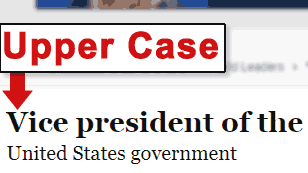Google is not showing publisher title tags for just under 20% of search results (commonly referred to as the SERPs). Some in the search marketing community have begun calling Google’s title tag update Titlepocalypse because some sites are losing traffic, presumably from badly rewritten titles in the SERPs.
Google Title Tag Update Casualty
Search marketer Lily Ray tweeted about a casualty from Google’s update. She noted that clicks declined by over 60,000 in the past week.
The site didn’t lose rankings, the average position stayed the same.
The conclusion is easy, the site lost traffic because Google rewrote the title tags.
Lily Ray Calls Google’s Update Titlepocalypse
1st significant casualty of the Google titlepocalypse:
This is a subfolder on an ecomm site where <title> tags switched out for <h1>, making them look a lot worse on Google.
CTR declined by .6% and clicks declined by over 60k in the past week!
(avg position stayed the same) pic.twitter.com/6hl9YdqhlC
— Lily Ray 😏 (@lilyraynyc) August 25, 2021
Impressions saw a slight decline but were pretty flat compared to the other metrics, so maybe some of the traffic decline stemmed from fewer searches taking place overall, but the CTR drop is pretty extreme.
I imagine Amazon is seeing similar patterns. pic.twitter.com/RxQi6tfup7
— Lily Ray 😏 (@lilyraynyc) August 25, 2021
Wrong Location in Title Tag
So many complaints have been pouring in that Google started a Webmaster Help Forum discussion where publishers can call attention to bad title tags in search results.
One publisher with a local type site that has multiple locations noted that Google was rewriting title tags and using the wrong location.
Having the wrong location in the SERP title is bad because a user will not click on the search result when it shows a city location that is not the one they are looking for.
The discussion post states:
“Hello, the latest change to titles is not properly representing the ‘brand attribute’ of the title. You are appending – AAA Northern California regardless of the location of the search. This business operates in multiples states outside of the Northern California region. CTR has dropped significantly in these instances.”
Google Mangles Health Related Titles
A particularly bad implementation of Google’s Title Tag update is in the health sector. Google is adding the word “vaccination” in the title for pages that are about an illness but not about the vaccination for the illness.
👋 Hi @googlesearchc @searchliaison @JohnMu, where is the best place to feed back on problematic page titles in SERPs? For a healthcare client it's changing condition pages (like "Flu", "Polio") to condition + vaccine ("Flu Vaccinations"). This is a big issue for YMYL content.
— Jenny Hearn (@lagringaeterna) August 25, 2021
It's unnoticeable to most, outside those interested in search engines, but in that example:
Google have taken what the page is about ('Flu'), and rewritten it to what they *think* it should be ('Flu Vaccinations').
That seems small (other than perhaps re pro/anti-vax) but… pic.twitter.com/aN8CoTll2o
— dan barker (@danbarker) August 25, 2021
Capitalization Errors
Search marketer Jennifer Slegg tweeted about Google inserting the wrong capitalization in the SERP titles, resulting in an awkward appearance with lower case words mixed with upper case words.
One of the weirdest things about the title tag update in Google is I am seeing far more titles with no capital letters, even for the first letter, and it looks so odd. pic.twitter.com/iBaCWdAfzu
— Jennifer Slegg (@jenstar) August 21, 2021
Screenshot of Lower Case Titles

Screenshot of Web Page Showing Upper Case

I checked the code of the web page and the mix of upper case and lower case in the title does not exist on the page. The awkward appearance of the title in the SERP is entirely the fault of Google’s algorithm.
Was Google’s Title Tag Algorithm Rushed?
There are so many errors reported by the publishing and search community that it’s tempting to conclude that this particular algorithm update was not thoroughly tested.
Google reportedly has thousands of search quality ratings. One would think that some of these errors, particularly in the sensitive areas of health and medicine, would have been spotted and fixed before the update was rolled out.
Is this a sign that Google is a little too confident in their algorithms?


